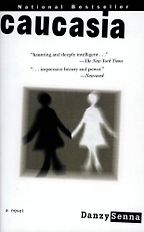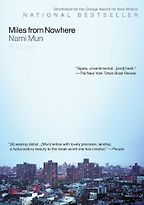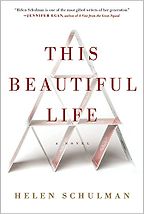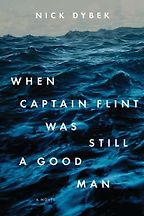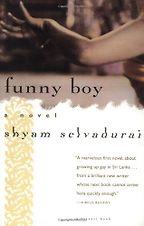You’ve chosen teenage misadventure as your topic – are teenagers particularly prone to misadventure?
It’s funny because the idea that teenagers exist, the concept of adolescence, is a very 20th century one. You have all these hormonal changes but also these psychological changes where teenagers really try to define themselves and determine who they are. They often define themselves in opposition to their parents, and their parents’ power over them. So you begin to see this assertion of identity, this need to come into your own so you aren’t merely your parents’ child: you aren’t merely the child of a rich man, or the daughter of a seamstress. You have a sense of self and you’re beginning to ask questions about what you value and what matters to you, and to stake a claim in your own identity. The way you do that, often, is through taking risks. Adolescents are prone to disobey whatever the prevailing rules of any culture might be, whatever might be taboo. There’s a certain amount of experimentation that goes on, so you have people drinking, having sex, taking drugs, all those troves. But then where they lead, how a person gets out of them, that’s what creates the narrative of self and identity.
In your own book, The Starboard Sea, you’ve chosen a teenage boy as the narrator – I was wondering where your experience come from. Do you have kids that age, or are you remembering your own teenagerhood?
I was a very studious child and a very serious teenager. I went to a prep school that was a boarding school and also a naval academy. When I arrived it hadn’t been co-ed for very long, and in my first year of class there were around 50-60 boys and 10-20 girls. I was a pretty shy person. I read constantly, my parents were rare book dealers and I grew up with a profound appreciation for literature. Over the summer before we went to school we had to read A Separate Peace by John Knowles, and Lord of the Flies. The funny thing about both those books is that there are no female characters in them. The books I was being asked to read and study and analyze were all about boys. I was in this position where I was in a very male world and I was seeing the world from this male point of view and I became really fascinated by teenage boys: the kind of freedom and power that they had, this incredible confidence that I was witnessing, but also how fragile that confidence was. With one misstep, your reputation could be destroyed.
I was in this one class and there were about nine boys and maybe three girls. We were talking about A Separate Peace and it was very obvious to me that it was a love story. It was about these two young boys who loved each other, and didn’t quite know what to do about it. It was a completely natural kind of love that ultimately had to be betrayed because it couldn’t be expressed. I started talking about this in class and my teacher shot me this look. He just didn’t want to talk about the fact that there was this love story between these two young boys. So we started talking about the honour code of the book instead. This had a profound impact on me, because I knew that there was probably someone in that room who was gay, and it would have meant something to them to have heard that part of the book discussed. That stayed with me forever. When you’re an adolescent, that time of self-definition, everything that happens to you imprints on you and impacts on you in a way that defines the course of your life. You’re so aware of every little thing that’s said.
Why, as adults, do you think we should read books about teenagers? Do you feel they’re learning lessons about life in a way we fail to do as we get older?
I always thought that there would be this day when I was going to wake up and finally be an adult. It doesn’t happen. It doesn’t even come close to happening. There’s a day you wake up and maybe you have a mortgage and you owe a bank hundreds of thousands of dollars, but I still think of myself as the girl I was when I was 16. That’s not out of vanity. It’s out of a sense of how small I feel. I think it was Roald Dahl who used to say, all writers should write for children. As an adult it never hurts to remind yourself – especially if you have children – of what it was like to develop a sense of empathy around vulnerability. Teenagers are so vulnerable, they may assert themselves, and have a certain amount of freedom, but ultimately they don’t have any real say in so much of their own lives.
Let’s go through your books. Your first choice is Caucasia, which is about a biracial girl growing up in 1970s Boston. Tell me why you’ve chosen it.
The author, Danzy Senna is just a brilliant, remarkable woman, who is a hero of mine. This novel is about two sisters, Birdie and Cole, their father is black and their mother is white. Birdie looks like her mother and Cole looks like her father and it creates this really conflicted dynamic within the family. The mother is Boston blue bood, but she’s rejecting all that in favour of becoming a civil rights activist and she is married to a man who is very active politically. The two of them together are very aware of how they look to the outside world and how, even for the 70s, their marriage is radical. When things start to go wrong between the parents, the sisters react by creating this private language that they speak and they have this really profound intimacy. There’s this sense that the government –someone – might be after the parents because of their political activities and as their marriage is falling apart they split up and the father takes Cole, the daughter who looks most like him, and the mother takes Birdie. They go on the lam separately, Cole and her father go to Brazil, Birdie and her mother go to New Hampshire. Birdie’s mother betrays her in this really complicated way by asking her daughter to pass for being white. She actually poses as being Jewish. It’s just such a powerful book about the time period, about what it means to have a complicated identity, and then to have that identity compromised by a parent, a person who is supposed to know best. Then there’s the political drama that fuels the book. But really it’s a beautiful love story between sisters and how they end up saving each other.
One online reviewer speculated the author must have biracial parents, because the details in the book ring so true.
Yes. Danzy Senna’s mother is a poet called Fanny Howe and her father, Carl Senna, is a writer and editor, and their relationship is sort of similar to the dynamic in the actual novel. But the book is all from her imagination. That’s the great beauty of fiction, you draw on features of your life but then make it something entirely different.
Let’s go on to Miles from Nowhere, about a teenage runaway in New York City.
I love the form of the picaresque novel – a low-born character trying to search out their identity through a variety of different misadventures. Both this book and Funny Boy are playing with the idea of the picaresque, they’re really novels in short-story form. Joon, the runaway in Miles from Nowhere is smart and wise beyond her years. She witnesses the disintegration of her parents’ marriage and this forces her out of her home, into the world, and she discovers beautiful and horrible things about herself. She becomes very good friends with a character called Knowledge who is probably my favourite character in the book. There is a kind of sexual frisson between the two of them and they break out together from this shelter. They do a prison break, but no one chases after them or really cares. They make their way in the world and slowly all the things they promised themselves they would never do, they do. Joon has a slow trajectory toward becoming a prostitute and a drug addict and Knowledge goes from being a drug dealer who doesn’t do drugs to being a drug dealer who does. What ultimately happens with Knowledge is so tragic, but the real beauty and triumph of the book is how Joon eventually rescues herself.
This book is a piece of art, it’s not a memoir, but I know the author, Nami Mun, had the experience of being a runaway in New York at a time in her youth.
This book is not for the squeamish, which I think may be a feature of a number of the books you’ve chosen. They’re all quite dark aren’t they?
I’m always amazed by the idea of “darkness.” I don’t want to read books that are affirmations of the beauty of the world! In literature, you want to reveal hard truths about the human condition and, the fact is, there are people who struggle every day of their lives. If you’re lucky and privileged enough to read about that, it gives you greater insight. I’ve never been afraid of the dark.
Tell me about This Beautiful Life by Helen Schulman.
The teenagers in this book are not just the actual teenagers but also the parents who in some way behave like teenagers – the mother gets stoned walking through the park on the way to pick up her daughter from nursery school. What I love about this book is that it really is one of the great novels about the now, about what it is like to live with all of this technology that mediates so many of our relationships. It’s a book about a very wealthy family in New York City that’s privileged enough to send their children to private schools. They have a son called Jake and a daughter they’ve adopted from China called Coco. Jake goes to a party and meets a girl called Daisy, who is much younger. She comes onto him and eventually winds up sending him a sex video of herself to get him excited and interested. Without even thinking about it, Jake forwards it to a friend. It goes viral, everyone in the school knows about it almost instantly, and it becomes this scandal. There are no heroes in this book, everyone behaves badly. The parents are not as aware of their children’s lives as they should be, the teenagers aren’t really aware of the kind of power that they have on their cell phones.
I was lucky enough to be at a writers’ conference this summer called Bread Loaf which takes place in Vermont. Helen Schulman read from this novel and she read this section where Jake has an exchange with Audrey, a girl he has a crush on. She has witnessed all of the scandal going down and she says to him, “Do you have any idea how hard it is to be a girl? You’re just an idiot boy, you’re all just idiot boys. Some day I’ll be old and ugly and nobody will want to fuck me and I won’t have to deal with you any longer. I’m really looking forward to that.” When I heard the author read that, it just cut through to the heart of what it was like to be a teenage girl: to have to play by all these rules where you really do feel powerless. You’re only valued for your appearance and your sexuality, you’re not really valued at all.
Is the book intended as a kind of cautionary tale for parents in the information age?
There’s certainly an element of that but, wisely, the book doesn’t offer up any easy answers. It doesn’t say ‘This is what should have been done.’ Certainly there should have been more communication and transparency among the family, and more awareness of what goes on at the parties these teenagers go to. But parents also don’t want to know. A good parent wants to give a teenager a certain amount of independence, and let them make their own choices. One of the things my own novel considers is that, as a parent, you always want to protect your child and ultimately you wind up having to protect your child from him or herself. When a child does something bad, that there ought to be some consequence for, does a good parent try to get their child out of trouble and prevent them from being punished? Or does a good parent say ‘These are the consequences of your action, you have to face them.’ I think so often nowadays, with children of tremendous privilege there are no consequences.
Let’s move on to your fourth book choice, When Captain Flint was still a Good Man.
This is written by a friend of mine, Nick Dybek. He writes with unbelievable power and detail about the sea. Our books came out in the same year and we both have a character named Cal. Both our novels are set in 1987, and are about the sea and the power of the sea. Nick’s book is a retrospective narrative, the actual events take place when Cal was about 14, and he has an obsession with Treasure Island. He lives on an island called Loyalty Island, and everyone who lives on it is involved in fishing.
Cal dreams of the sea. There’s this relationship between the ocean and the land: when you’re out at sea and you sleep out on the water, with the hypnotic rhythm of the waves, you have these funny dreams that often involve land in these crazy ways. When you can’t tread on the earth you become this other species. But when you come back to the land, you long desperately for the sea. There are so many gorgeous scenes about the ocean in the book. There’s a scene when a character falls into a crab cage, and the cage goes down into the ocean at hurtling speed. It’s so haunting.
Cal’s father is a fisherman, he’s out at sea for months. When times are good they’re wonderful, but you’re always at the mercy of the weather and the market. It’s just such a tough life. I love the child noticing the parents’ hardship and wanting to romanticize the world, but being aware that’s a very dangerous thing to do – making a world seem more glamorous and exciting than it actually is.
There’s a man called John Gaunt, who owns the fleet of boats, and when he dies, his son Richard plans to sell the whole thing off. So you have this dilemma – everyone on the island is going to potentially lose their livelihood.
Some of the reviews comment on what a great plot the book has.
I do think it’s a brilliantly plotted book. It has many secrets that it doesn’t willingly give up. Plot is very important to me as a writer, I think it’s underrated.
Again, this book touches on the theme of bad marriages or broken families. Why are you so attracted to those?
My own family is incredibly stable and supportive, my parents have been married for years, and they still love each other. I’ve an older sister and a younger brother, I’m the middle child, observant, often-overlooked – and happy to be overlooked. But the friends that I made often didn’t have that in their lives – I had a lot of friends who had tremendous instability. I think there’s a kind of honesty to it. A family really only stays together if people are willing to compromise, and there’s a certain dishonesty to compromise. So if people are unwilling to compromise it creates all this drama and you actually get to see what it is the parents really want for themselves. Parents give up so much of their lives for their children and when a parent decides not to give something up for a child, it creates this unbelievable opportunity for narrative, for story.
Lastly, tell me about Funny Boy, which is set in war-torn Sri Lanka. One online reviewer found it in the gay section of their library and said it really shouldn’t be there, because it’s about so much more than that.
Yes, the consideration of sexuality is so important to part of the character’s life but there’s also so much more going on politically. The book won a Lamda prize which is wonderful. It opens with this really sweet and funny description of this young boy, Arjie, who is seven years old and his favourite game is called ‘bride-bride’ that he plays with his 16-year old cousin. He loves being the bride, a beautiful woman, putting on the veil and having flowers in his hair, he’s attracted to being beautiful and feminine. One of his relatives says “Oh he’s a funny one” which is how he gets his nickname, funny boy. It’s heart-breaking because anyone who is pointed out as being different is going to be bullied and maligned and harmed and what we want in the story is for Arjie to experience love and to have a real connection. When he finally does he comes into his own, but the experience of first love isn’t entirely satisfying either.
The novel is set in the 1980s around the Tamil and Sinhalese conflict, so you have the riots. Arjie is coming to understand all the different ways that people are identified as being different and how that impacts freedom.
Arjie is sent to an all boys’ prep school. That’s wonderful for him because he’s getting more and more attracted to boys, but it’s also dangerous because the boy he’s most attracted to is openly gay, or as openly gay as he can be, and the administrators of the school frown upon their relationship. So you have the trove of the prep school novel and all that can happen when you’re away from your parents and their power over you.
But there’s also light-heartedness in the novel?
Yes, I think all of the books I’ve chosen have elements of humour and wit, that’s sort of inseparable from tragedy.
Five Books aims to keep its book recommendations and interviews up to date. If you are the interviewee and would like to update your choice of books (or even just what you say about them) please email us at [email protected]
Five Books interviews are expensive to produce. If you've enjoyed this interview, please support us by donating a small amount.
